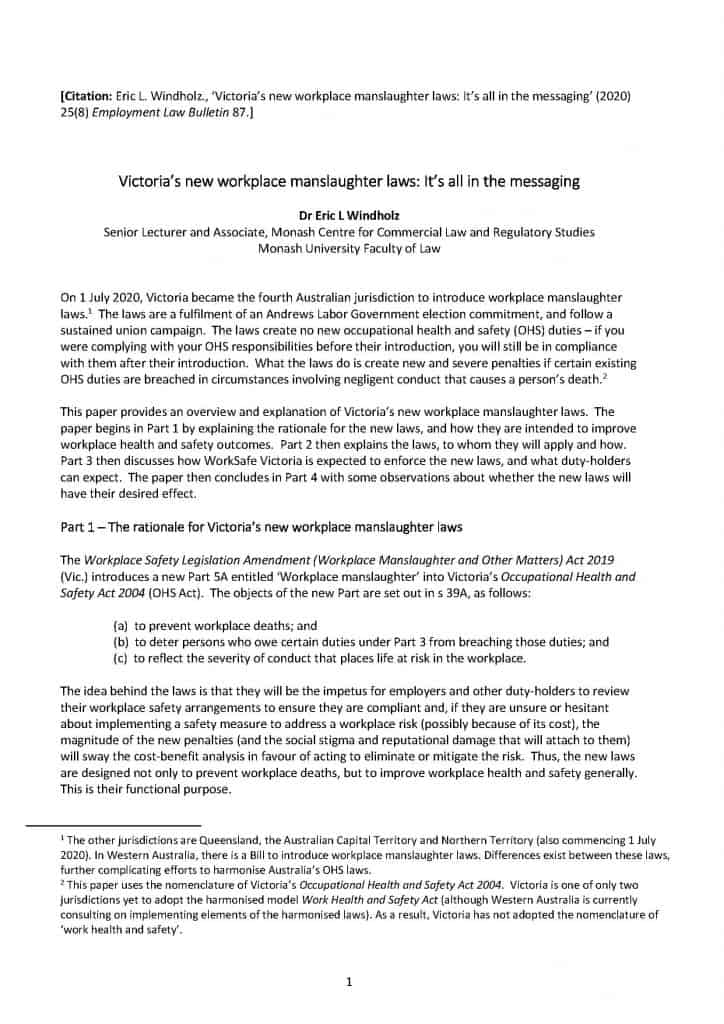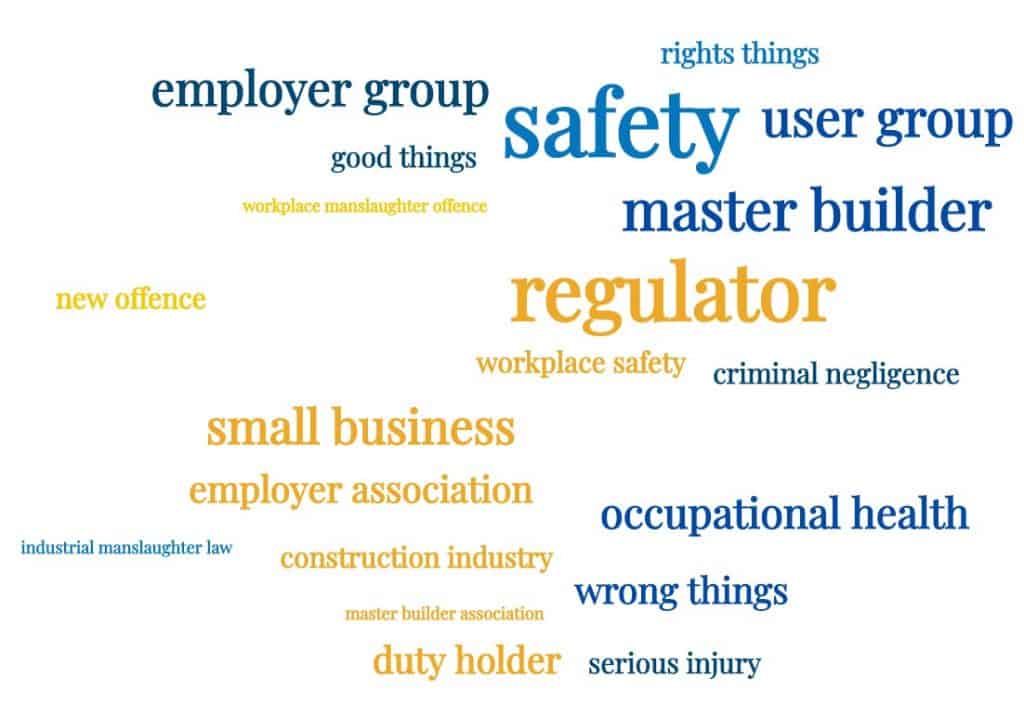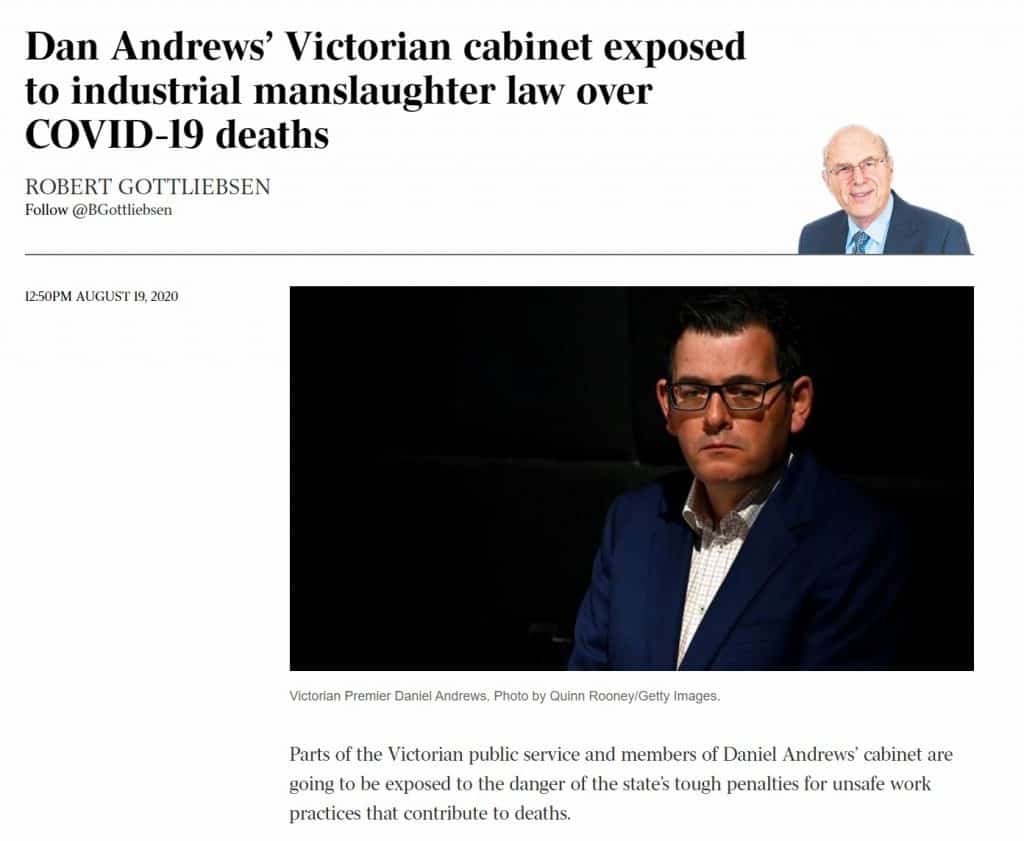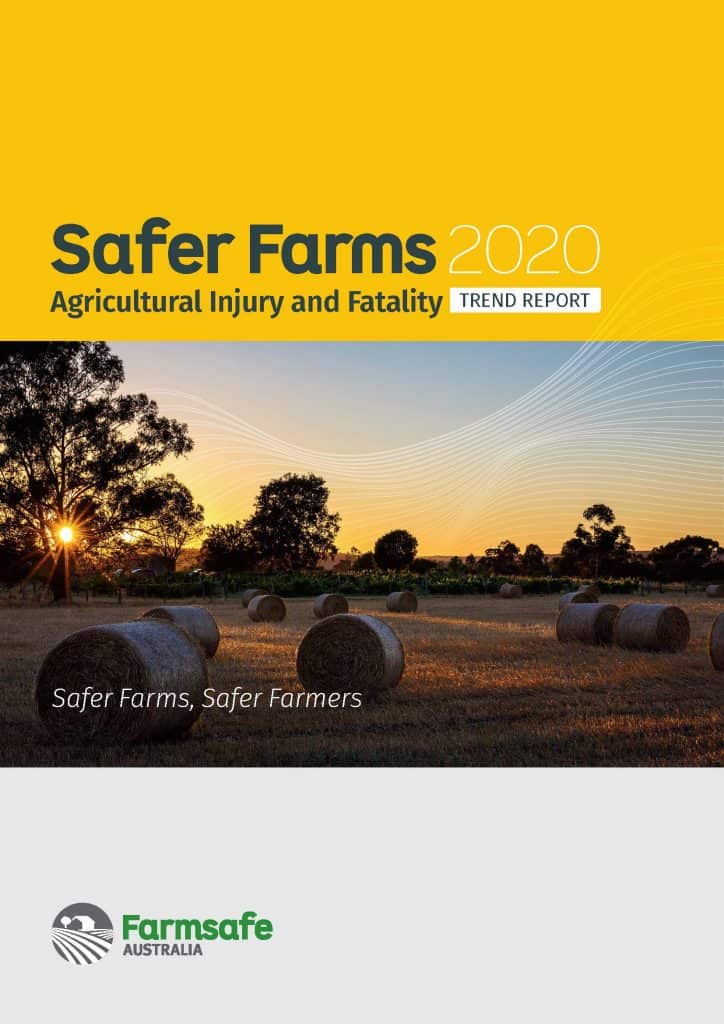
Eric Windholz has released a perceptive paper on Industrial Manslaughter (IM) that neatly summarises the risks and rationales behind these legislative changes to Victoria’s occupational health and safety (OHS) laws.
Windholz explains two functions of the amendments – a motivator for employers to improve OHS in their workplaces and to provide a pathway for bereaved families to actively consult with the government.
The mechanism for the families’ input is the Workplace Incidents Consultative Committee. Windholz writes:





